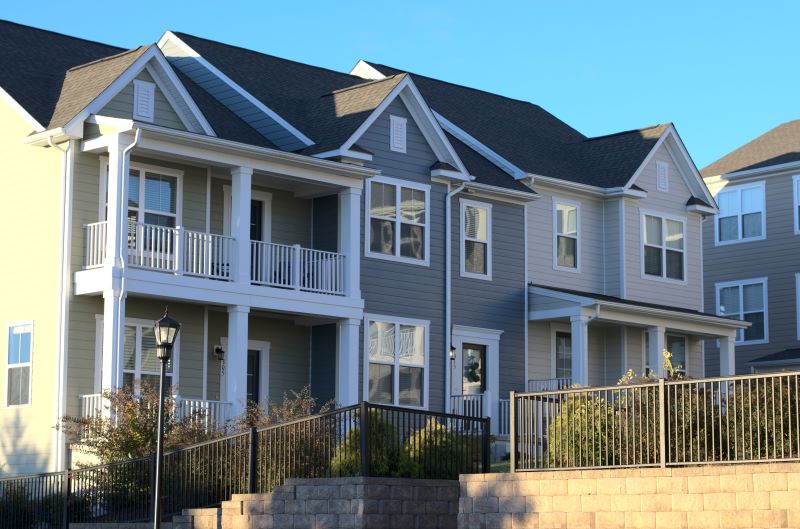
We’ve all heard the old saying, “renting is throwing money away.” And on the surface, that makes a lot of sense. Many a long-time renter has longingly gazed at their home- owning friends building equity, and wondered if they were making a mistake. Many well-intentioned friends or relatives have advised us to buy a home as soon as we can, so we stop “setting our money on fire.”
Sounds good. Seems logical. But what’s the truth behind it? Is there really a one-size-fits-all answer? Let’s take a closer look.

The True Cost of Equity
When talking about the pros and cons of renting vs. buying, the first word out of most people’s mouths is “equity.” And with all things being equal, it seems like a straightforward deal: homeowners are building equity with their monthly payments. Renters are not. So we’re done here, right? Case closed?
Not quite.
Yes, homeowners are building equity with each monthly mortgage payment. But it’s worth keeping in mind that the amount of equity is directly tied to how much of that mortgage payment is being applied to the principal, rather than going towards interest. If your mortgage is like most, you’ve got stable monthly payments for its duration. That’s great for budgeting purposes, but it also means that you’re starting out paying more interest than principal.
In other words, not building nearly as much equity as you might think.
So you’ve gotten your awesome new dream home: a steal at $650,000. You’ve signed up for a 30-year, fixed-rate mortgage with an interest rate of 4%, and a down payment of $130,000, giving you a starting loan balance of $520,000. That’s going to give you a monthly payment just under $3,500… but only about 30% of your first month’s payment — about $1,050 — would go towards the principal, building equity in the process. The other $2,450 or so?
Down the drain. Set on fire. Call it what you will, but don’t mistake it for equity: that money’s gone.
For the first five years or so of the mortgage, only a third or so of your monthly mortgage payments will actually go toward the principal, building you equity. Even when you do, home equity isn’t liquid: you can’t move it to a better-performing stock, or cash it out to make a purchase without first selling your home. And if you’re moving in a hurry or selling during one of Boston’s (admittedly rare) down markets, your equity might not be as impressive as you’d hoped.

You’ve Got Other Investment Options
If it’s equity you’re looking for, there are options besides a life-altering, six-to-seven figure investment that you may or may not be ready for. If the 2008 housing crisis taught us anything, it’s that the old truism of buying more house than you can afford, as soon as you can, wasn’t the universally great advice that many believed.
Opportunity cost is still a cost: you can’t take advantage of a great investment opportunity if your funds are tied up in a decades-long investment. And while your home’s value is steadily increasing, so is inflation: and while it’s true that Boston real estate is ahead of that curve, it doesn’t mean that there aren’t other options. Sure, housing values are up: but the Dow Jones is rising even higher. Home ownership is a fantastic, stable, long-term investment: but it takes years to bear fruit. If it’s quick equity you’re after, living in an apartment while setting aside some cash for investments can pay off much faster, without being on the hook for decades of mortgage payments. We often have to understand, that buying our own home more likely than not, should be looked at as a consumption based practice rather than an investment based strategy. When you talk with lots of real estate agents that started on the renting and investment side of the industry, the blueprint to success starts to be a lot clearer.
You will start to realize that many young investors will often save money by renting a cheap place with a lot of roommates and get their monthly cost down to as low as possible in order to save money to buy their first rent and hold property. Their goal is positive cash flow, capital appreciation and tax advantages not found in the stock market. In other words, by living in a frugal manner they are using their self-discipline of sacrifice to buy investment vehicles that generate long term wealth for them down the road. Many young real estate investors and agents have zero interest in buying their own home until their positive cash flow from their other investments is paying off that mortgage where they live. In other words the path to true wealth is buying investment properties first before you buy your first home for yourself. This is going against the grain thinking but it is the truest path to success even though it will require more short term sacrifice to be able to have a much larger long term success platform.
It’s never too early to start investing in real estate that generates positive cash flow. When you talk to hundreds of landlords over your years in real estate, you will come to realize that most of them lived with roommates and saved money, often put it in the stock market, and let it grow while they looked for their first or their next property to buy. Most real estate investors had three jobs, which included their primary job and part time investor in both stocks and real estate until the best path let them move fully into real estate. Therefore all real estate decisions are not created equal. Remember when you own your own home you are not charging yourself a rent that generates income. When in doubt think about production vs. consumption. Now there will be exceptions to this rule because the real estate world always has outliers. Perhaps you buy a rundown home for yourself at a cheap price, and you work on it over time. You might be even able add square footage through proper zoning practices and in high cost per square foot areas, this is a great scenario. You might be able to quickly renovate and sell for more money. However there are a lot of ups and downs to living in your own home as you renovate. It’s all about your strategy and what you can handle vs. the potential reward for taking on this risk. You are going to have a lot of responsibilities. And speaking of the proverbial hook…

You’re On the Hook for Everything
It’s a cold New England morning, and much to your chagrin, there’s something wrong with the furnace. If you’re renting, it’s a hassle to get the maintenance crew in to get everything working properly, but it’s ultimately their responsibility.
If you’re a homeowner, guess who gets to deal with it? (It’s you.) This is going to apply to both investment properties and your own home ownership. You are going to have to develop relationships with people in the construction, home improvements and real estate related trades. Find experienced people that know real estate and become a sponge. As you move from renter to owner, you are going to carry more phone numbers in your mobile phone and you will be making more calls than a renter. Building equity and/or positive cash flow is going to take away from some of your free time. To make money or build long term wealth in real estate will require some lost time because you are investing in the future. Time is money as the saying goes.
When you buy property, you are going to see a lot of costs that you didn’t know existed. Some of them you will question and say to yourself, am I wasting money? On the topic of “throwing money away,” between taxes, interest, homeowners’ insurance, HOA fees, and all the joys of building maintenance, homeowners spend plenty of cash without the feeling of moving forward in a positive direction in your financial future. Know that you will see unexpected problems that often make you doubt your decision that buying was a good idea. If you bought a property that was strictly for consumption, there could be months where you have to tighten your belt to pay for big ticket items that needed repairs or replacement. You may need to get a temporary second job to get you over the occasional rough patches, and this is not uncommon over the course of many years. If your personality isn’t built for occasional financial ups and downs of home ownership and you like to know you outcome in advance, renting is probably more for you. Renters still aren’t getting any equity, but their costs are far more stable from month to month. If it’s your home, then any bad luck is yours to shoulder. You have a lot to think about, but when in doubt try to aim in the direction of what is going to help build your financial plan that plays to your strengths and overall strategy.
So, Should I Rent or Buy?
If you skipped ahead in the article hoping for a quick and easy answer, sorry to disappoint you: home finances are rarely that simple. We covered a lot of different scenarios of what kinds of real estate purchases and living strategies could put you in a position to win big when it comes to a wealth building strategy. A lot of it comes down to your financial and professional situation, and how much that’s going to develop or alter over the years. No one has a crystal ball, but real estate can give you a more solid footing on seeing patterns than the stock market could ever provide you. When you start to gain experience, you are captain of your own financial ship and make moves through your own merits. Real estate investing gives you more control than the stock market. Buying investment real estate is virtually always a good decision in the long term.
The key phrase here is “the long term”. If you’re looking for something that’s going to pay quick dividends, buying a home for consumption purposes might leave you disappointed. You may have an eye for value adding to the property and that can certainly change any math equation. You really need to think about investment properties vs. home ownership vs. the stock market or forms of wealth creation. If you love the area you live in, and never want to leave, real estate gets even better. If you’re not sure you’ll be living in the same place five years from now, buying instead of renting might not be worth the hassle. However, if you’re looking to set down some roots, home ownership as well as an investment strategy makes a lot of sense: you’ll really start to get the benefits after a while, to say nothing of saving on moving costs, federal income tax, brokerage fees, and so on. While you can start building an real estate investment portfolio anywhere, it makes a lot more sense to start locally and close to where you live as you gain experience. Many “do it yourself” landlords will tell you they have a 30 minute commute rule of buying investment properties. Figure out what works for you – but seek out experienced people to accelerate your path to critical knowledge.
Buying a home is an incredibly potent investment, and one that you should definitely consider. But that doesn’t mean that it’s the only right answer. Both renting and buying have plenty of pros and cons between them: like any major life decision, it’s about figuring out what’s best for your current situation. Talk to as many people as you can to draw wisdom. Read books on real estate planning and listen to podcasts. Look for companies that provide the best real time data and how to capitalize on market opportunities.
If you’re still not sure which path is right for you, feel free to reach out to us: we’d be happy to help you get clearer on your goals. We can help you consider different financial strategies. Our plan is to help you win through a plan of action. We know: renting, buying and selling. And with thousands of apartments for rent and many homes for sale at any given time, our real-time database puts us in the best position to help you rent the best place, find your dream home or acquire an investment property. We have you covered.

Demetrios Salpoglou
Published March 9, 2020
Demetrios has pulled together the largest apartment leasing team in the Greater Boston Area and is responsible for procuring more apartment rentals than anyone in New England – with over 130k people finding their housing through his services. Demetrios is an avid real estate developer, peak performance trainer, educator, guest lecturer and motivational speaker.











